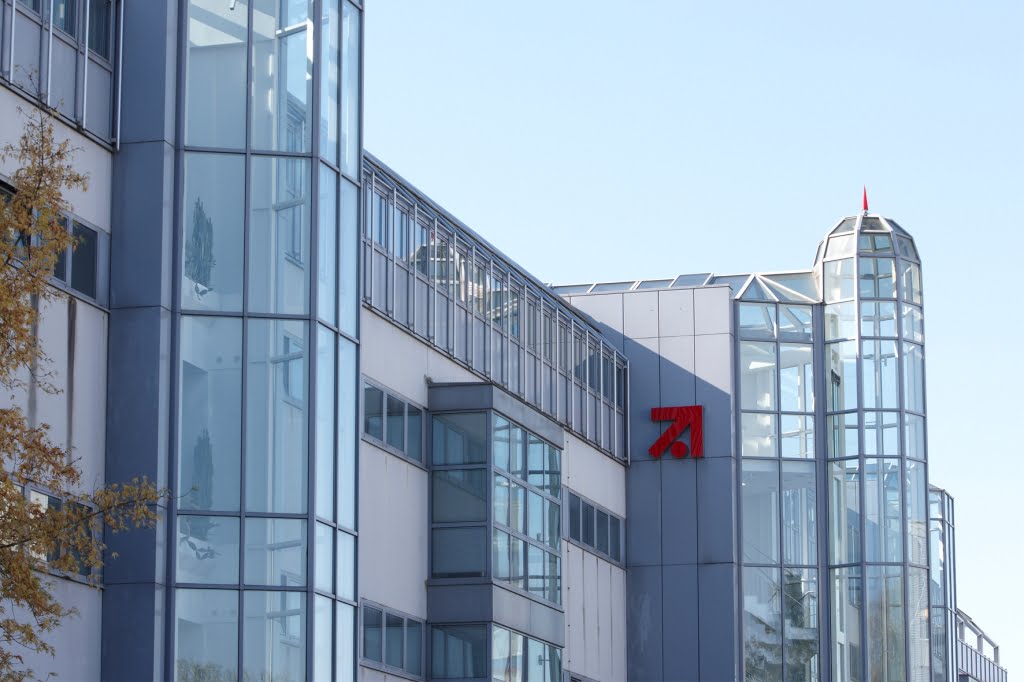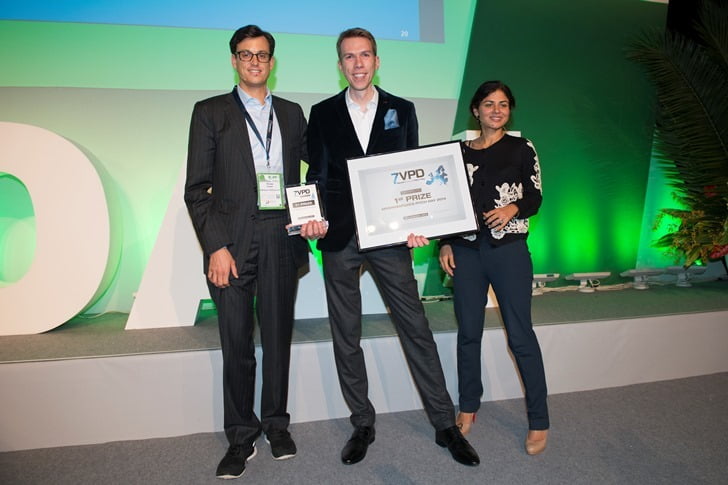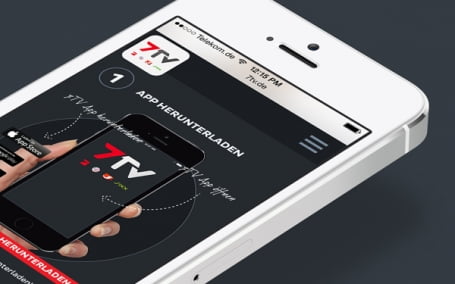If you thought startup competitions were all about the money, you were wrong (well.. kind of). The German mass media giant ProSiebenSat.1 will hold a one-of-a-kind startup competition, 7VPD, this December in Israel where the winners will be rewarded €7 million ($8.7 million) in advertising money. That’s right—instead of cold, hard, cash, ProSieben will dish out television and digital advertising space. But what does funding through advertising even mean and who does it really benefit – the startup or the tycoon? ProSieben’s Israel Director Kevin Baxpehler spoke with NoCamels to explain how this unique funding model works and described the media company’s eagerness to innovate through Israeli companies.
Into the age of digital advertising
ProSieben itself has been around essentially since the fall of the Berlin Wall in 1989, but once it merged with Sat.1 in 2000, the company has grown with impressive speed. Today, according to Baxpehler, the company has a $9-10 billion market cap and reaches almost 95 percent of households in Germany, about 76.5 million people. However, according to Kevin, the company has slowly realized that television advertising will no longer drive the future of the company, which is why it is turning towards digitalization and the innovative companies in that sector.
“The whole story for ProSieben is to find new technology companies that can become core assets to our businesses, helping them with investments, enter the European market, and eventually learn a thing or two from them,” says Baxpehler of the company’s digital arm, which owns, according to his quote, about 50 portfolio companies in the digital space (recently investing in the much-talked about ‘Jawbone’ venture). Within Israel, the company has invested in two local companies, DynamicYield and another as yet undisclosed, since it opened up shop this past April.
SEE ALSO: Europe’s Largest Research Organization, Fraunhofer Society, Sets Sights On Israel
But this is only the beginning, according to Baxpehler, who details the exhilaration of ProSieben executives during a recent trip to Israel, “When I brought them to Israel, they fell in love. A literal quote of their’s was, ‘Wow! The startups in Germany have a lot of learning to do,’ which is why, after visiting about four startups, they decided to open an office in Israel.” Now, through the competition and ProSieben’s own endeavors, the company hopes to establish a presence as an investor and business partner within the Israeli startup scene.
An investor seeking a strategic role in the company
In order to raise awareness of ProSieben’s entry into the Israeli market, the company will hold a one-of-a-kind competition, where, as mentioned, the winners will not be awarded with cash, but with money towards advertising. Exclusively to NoCamels, Baxpehler revealed which Israeli startups will be competing for the coveted prize: EatWith, Popeek, Umoove, TinyTap, MediSafe, Minute and Elephone. This is not ProSieben’s usual model of funding, but their take on providing venture capital to innovative startup companies could encourage a number of communications giants to do the same. Through their venture capital arm SevenVentures, ProSieben invests funds (the standard), offers media for equity (or a mixture of the two), and shared revenue options for media campaigns to companies that it wants to learn from, see grow and help enter the European market.
According to Baxpehler, “In any company we pursue, we want to have a strategic role in bridging the gaps and helping them enter the European market. Even operationally we are willing to help the startup. That’s very special, in comparison to the more ‘traditional’ investor role.” Baxpehler points out that through ProSieben’s various channels, televised and digital, as well as its associated marketing and gaming institutions, the company is set on seeing startups take off within the German and wider European markets.
Sign up for our free weekly newsletter
SubscribeGetting back to the competition, Baxpehler specifies that the company will look for promising ‘Business-to-Customer’ startups that have been around for three years or less (and are still in the seed-funding stage). “Within a couple of months, through ProSieben’s advertising capabilities, Germans will know the company’s product and be very well familiarized with it.” Specifically for the competition, ProSieben is looking for early-stage companies with real products and services that can appeal to the wider German population. The winner will be selected by a prestigious panel made up of Yuval Shahar (or ‘Chief Investorpreneur,’ as he likes to call himself), Yahel Zirka, and Liat Aronson, among others.
Why ProSieben wants to help startups crack Europe
So let’s get down to it; why is it so difficult for foreign startups to enter the European market? And why has it taken so long for Europe to launch its own ‘Silicon Valley’ (which we still eagerly await)? A German native himself, Baxpehler had some interesting input on why large companies like ProSieben are only now waking up to the startup surge.
SEE ALSO: Israeli Startup Develops European Startup Alert
“I think that it’s been difficult for startups to enter Europe because the continent is so hard to grasp. There are 27 member countries, hundreds of languages and lots of different tax regulations for every country. This makes entering the market really complicated and location-dependent. This is one of the reasons that ProSieben has decided to make things easier by bringing companies to Germany first, opening the gates to the rest of Europe.”
OK, so Europe is a hard nut to crack for startups, but why haven’t we seen the development of a real tech hub in Europe? Baxpehler believes that’s because Europeans are faced with such a large home market, that, unlike Israel, it’s hard for them to see the progress of a small startup moving forward. He states, “Europe is really an emerging market in terms of startups, while Israel is a developed startup nation. The big, traditional companies that control the majority of the European market are looking to be disruptive by introducing new technology in order to remain competitive.”
The 7VPD pitch day to be held this month in Israel (the first time outside of London) seems to be ProSieben’s strategy for getting on top of the Israeli competition, setting up suitable, young B2C startups with an advertising offer they can’t refuse. Hopefully similar endeavors by European institutions are in the cards, and instead of setting their sights on Silicon Valley success, Israeli startups and entrepreneurs will endeavor to the bourgeoning innovation hubs of Europe.
Photos: A flat screen television has a black blank text area with photo images coming out of the side of it/ ProSieben/ courtesy/ ProSiebenSat
Related posts

Editors’ & Readers’ Choice: 10 Favorite NoCamels Articles

Forward Facing: What Does The Future Hold For Israeli High-Tech?

Impact Innovation: Israeli Startups That Could Shape Our Future








Facebook comments